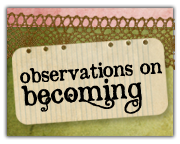The Mission of Frederick Douglass
Frederick Douglass wrote an autobiographical narrative of his life, “Narrative of the Life of Frederick Douglass: An American Slave”. In this book, he described the effects of slavery and his experiences concerning it. He also gave many speeches, after becoming a free man, advocating for the abolition of slavery, and representing his people. One of these speeches was “The Meaning of July Fourth for the Negro”. What was his mission, what was his purpose in actively opposing slavery? I believe his mission was to inform people of the cruel reality of slavery, and to influence people towards abolition, for the sake of his fellow slaves.In his narrative, he frequently describes the startling truth about slave owners. To accomplish this, he often stopped, while describing an experience, to point out and explain a method of behavior on part of the slave or slaveholder. Here is an example of this. He is speaking of the holidays that slaveholders gave their slaves once a year.
From what I know of the effect of these holidays upon the slave, I believe them to be among the most effective means in the hands of the slaveholder in keeping down the spirit of insurrection. Were the slaveholders at once to abandon this practice, I have not the slightest doubt it would lead to an immediate insurrection among the slaves. These holidays serve as conductors, or safety-valves, to carry off the rebellious spirit of enslaved humanity. (84)
He takes great pains to ensure that the readers understand what the slaveholders used to keep the slaves in ignorance, and why it succeeded. He makes it his mission to bring forth facts, examples, and insight. In his situations and experience, he speaks of how it applies to the whole of slavery, and what part the slaveholders play in it. To further example this, here is another topic on which he dwelt strongly and lengthily. When he lived in the Auld home, his mistress undertook to educate him. Her husband bitterly opposed it, and she gave it up. It was then that he realized that the withholding of education was the most powerful weapon of slaveholder.
“Learning will spoil the best nigger in the world (Mr. Auld)…It would make him discontented and unhappy.”… I now understood what had been to me a most perplexing difficulty- to wit, the white man’s power to enslave the black man. It as a grand achievement, and I prized it highly. From that moment, I understood the pathway from slavery to freedom. (48)
Throughout the rest of his narrative, he speaks of the withholding of education from the black man, and how that kept him in bondage; it gives him no understanding to think for himself, no perception of the reality of what he (the slave) really is. It seems to be the purpose of his narrative to inform others of the underlying truth of the most common occurrences, whatever they may be.
His “The Meaning of July Fourth for the Negro” speech again shows this mission. How so? It speaks the bold truth about slavery and slave-owners, in a way that cannot be argued with. The clear points of his speech seem to breathe abolition with every word, and I have no doubt that it was greatly influential to those that heard it, then and afterward. Here his focus is more on the difference between the black man and the white man, and the hypocrisy of the nation, while his narrative focused more on the hypocrisy of the slaveholders themselves, showing his intention to reveal the truth and facts to the world.
If I do forget, if I do not faithfully remember those bleeding children of sorrow this day, "may my right hand forget her cunning, and may my tongue cleave to the roof of my mouth!" To forget them, to pass lightly over their wrongs, and to chime in with the popular theme, would be treason most scandalous and shocking, and would make me a reproach before G-d and the world. My subject, then, fellow-citizens, is American slavery. I shall see this day and its popular characteristics from the slave's point of view…
America is false to the past, false to the present, and solemnly binds herself to be false to the future. Standing with G-d and the crushed and bleeding slave on this occasion, I will, in the name of humanity which is outraged, in the name of liberty which is fettered, in the name of the constitution and the Bible which are disregarded and trampled upon, with all the emphasis I can command, everything that serves to perpetuate slavery the great sin and shame of America! “I will not equivocate; I will not excuse”; I will use the severest language I can command; and yet not one word shall escape me that any man, whose judgment is not blinded by prejudice, or who is not at heart a slaveholder, shall not confess to be right and just.
The above paragraphs seem to have been his motto. Injustice was like the fuel on which he filled his tank of indignation. Here is another excerpt from his excellent speech, “The Meaning of July Fourth for the Negro”. He was presenting the usual arguments, but in a different manner.
"But I fancy I hear some one of my audience say, "It is just in this circumstance that you and your brother abolitionists fail to make a favorable impression on the public mind. Would you argue more, and denounce less; would you persuade more, and rebuke less; your cause would be much more likely to succeed." But, I submit, where all is plain there is nothing to be argued. What point in the anti-slavery creed would you have me argue? On what branch of the subject do the people of this country need light? Must I undertake to prove that the slave is a man? That point is conceded already. Nobody doubts it. The slaveholders themselves acknowledge it in the enactment of laws for their government. They acknowledge it when they punish disobedience on the part of the slave. There are seventy-two crimes in the State of Virginia which, if committed by a black man (no matter how ignorant he be), subject him to the punishment of death; while only two of the same crimes will subject a white man to the like punishment. What is this but the acknowledgment that the slave is a moral, intellectual, and responsible being?"
I think nothing could be clearer, than that his mission was to enlighten his readers and listeners of the truth of slavery, and of the hypocrisy of America and slaveholders. He could not do this without advocating for the freedom of his fellow slaves. Therefore, while writing speeches, and narrating his life, he pushed for abolition with every word, and was, no doubt, one of the most influential and powerful speakers of his time.








No comments:
Post a Comment
I appreciate your presence. Feel free to share your opinions and perspectives in good spirit! :)